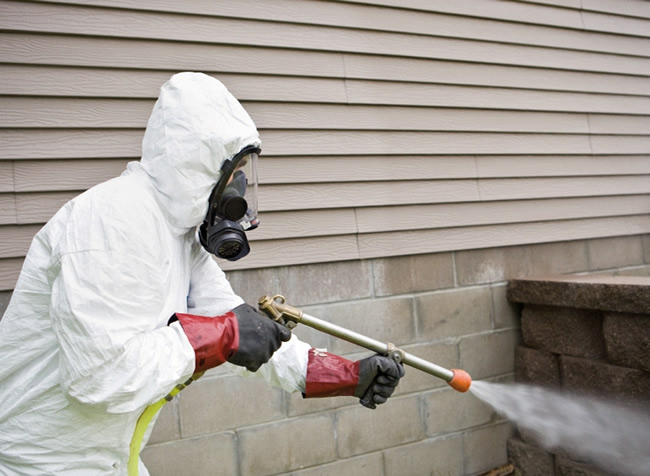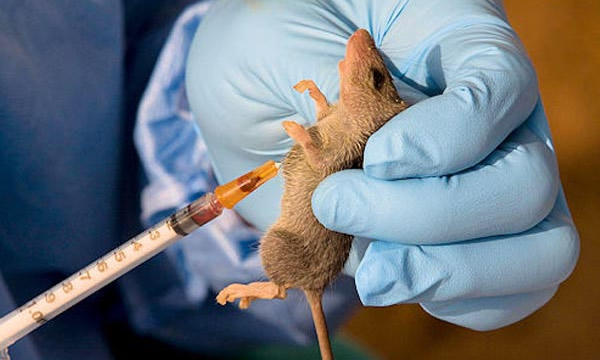Unknown to many Nigerians, the Lassa fever virus has so far claimed the lives of 41 people in the country. The death toll has exceeded the figure recorded during the outbreak of the Ebola Virus Disease in the country two years ago.
One may wonder why there are so many causalities. The answer is simple: Lassa fever is a highly infectious disease and many people are not even aware of its mode of infection, transmission and how it can be prevented. It is so contagious that you can contract it in the comfort of your home.
To understand how to prevent more deaths from Lassa fever infection, experts say one must learn its history, symptoms and simple ways to avoid it.
According to them, a species of rodents, known as the Multi mammate rat, which breeds in Nigeria and can be found in many homes, especially in the kitchen, is the major harbinger of the disease.
A virologist, Dr. Olumide Abunbarin, says that the animal host are tenants in many communities in Nigeria. This explains why many Nigerians are at the risk of contracting the disease.
He says, “The reservoir, or host, of the Lassa virus is a rodent known as the Multimammate rat of the genus Mastomys. Mastomys rodents are sometimes used as a food source. The infection may occur via a direct contact with it, its urine, faeces, blood or consumption of contaminated food.”
Another public health physician, Dr. Segun Adeboye, notes that another way in which one can contract the deadly virus in the home is through poor hygiene.
Adeboye notes that these rats scavenge on left-over food and they breed better in a dirty environment, especially where there is a lot of refuse.
He says, “If rats are fond of coming into your house for their breakfast, lunch and dinner, then you should know you are at a higher risk of getting infected. They will live in your home and leave all the viruses they carry behind.
“If you eat food items contaminated with urine and droppings from an infected rat then you can be infected. The best thing is to store all food items in sealed containers.”
They say that there is no better time for Nigerians to take environmental sanitation and community management of refuse more seriously as these rats hide and breed better in dirty places and open refuse dumps.
They warn, “There is an air-borne transmission of Lassa virus. One can be exposed to the virus if one inhales tiny particles in the air contaminated with rodent excretions. That is why there is the need for a proper personal and household management of refuse to keep rodents away from our homes and environment.
“Indiscriminate dumping of refuse should be avoided as these are potential breeding grounds for rats. Clearing of bushes and refuse to reduce hiding and breeding spaces for rats is also important.”
Like Ebola, you can also contract the virus by touching the body fluids of an infected person. It is called person-to-person transmission.
But, as infectious and deadly as it is, Lassa fever infection can be prevented if one observes simple rules of hygiene to reduce the risk of contracting the disease directly from the host or through the secondary form of infection or person-to-person transmission.
One of them is hand washing with soap. Adeboye notes that the importance of washing one’s hands with soap and water to get rid of germs, bacteria and other viruses cannot be overemphasised during the period. According to him, this age long habit has been proven to reduce the risk of infection by more than 60 per cent.
Adeboye says, “ Many people are aware of the need to wash their hands, but what we are saying is that you should use soap or a disinfectant when you are washing those hands. That is what will kill the bacteria or virus. The hand is the means by which most infections are contracted. And the average person touches his/her mouth at least 10 times a day.
“If you touch an infected person with your hand unknowingly and you don’t wash your hand before eating, you have introduced a virus into your body just by being negligent. Science has proved that 70 per cent of infections are contracted via the mouth through the hands.”
Access to portable water is still a challenge in most cities in Nigeria. However, you can always improvise with hand sanitisers. They are portable, which means you can carry one in your bag, car and in your office.
Adeboye notes that organisations with a staff strength of more than 50 should have hand sanitisers installed in major entry points in their offices.
“People should promote the use of hand sanitisers, which have been chemically designed with natural disinfectants. Sanitisers are potent but not poisonous. They are also user-friendly and easily absorbed into the skin, unlike when you use water and you have to clean up with a piece of cloth again, which may now contaminate the hand you just washed. We must encourage more people to key into hygiene. Insist that the restaurants where you eat have it. Install it in your homes.”Adeboye adds.
Also, any hospital that has the safety of its patients and health workers at heart would have installed sanitisers in each of their wards and facilities, including toilets, by now.
Experts note that the hospital environment remains the easiest place to contract infections and health workers must ensure that they do not become the carrier of the virus, thereby endangering their lives and that of other patients.
They insist that hospital owners must sensitise their workforce on the importance of decontamination as a means of infection control.
Adeboye says,“The standard practice is that a doctor or nurse must wash his/her hands or use sanitisers before examining a patient and after examining the patient. There is no room for compromise now. We should not be seen as people that are careless again. These are times for drastic measures especially if you live in any of the states where some cases have been confirmed.”
However, beyond Lassa fever, hand-washing with soap has been proved to prevent one from contracting diarrhoea and pneumonia infections, which kill more than 100,000 children annually in Africa.
Use this period of the outbreak to look at ways you can make your home cleaner and safer for you, your family and your community.
PUNCH.






